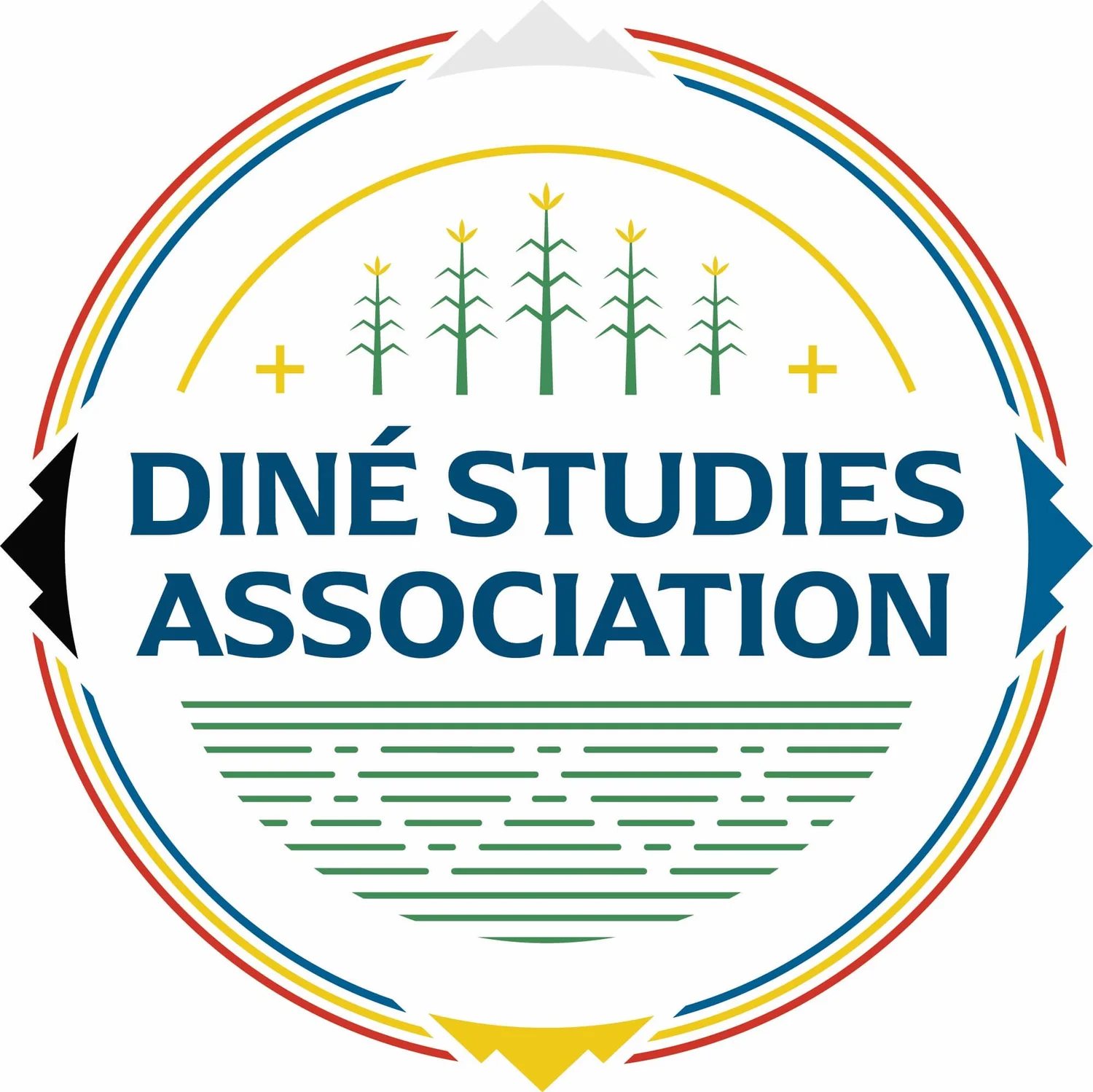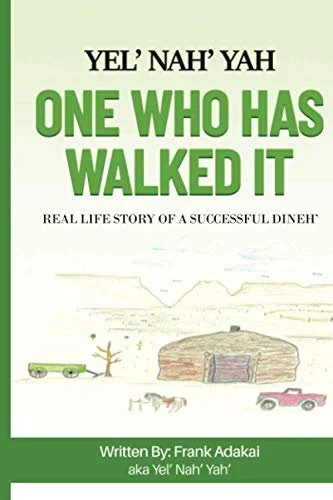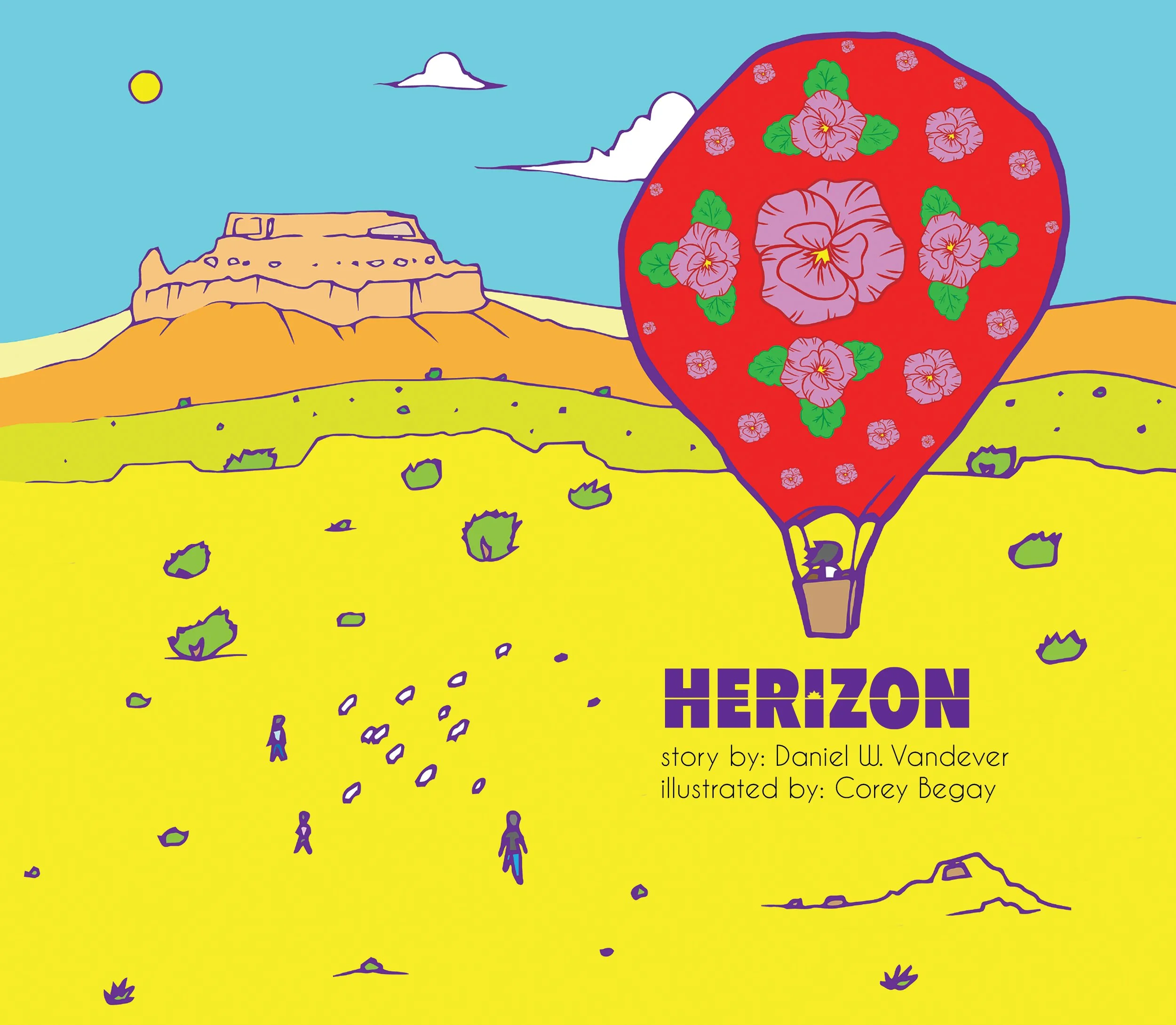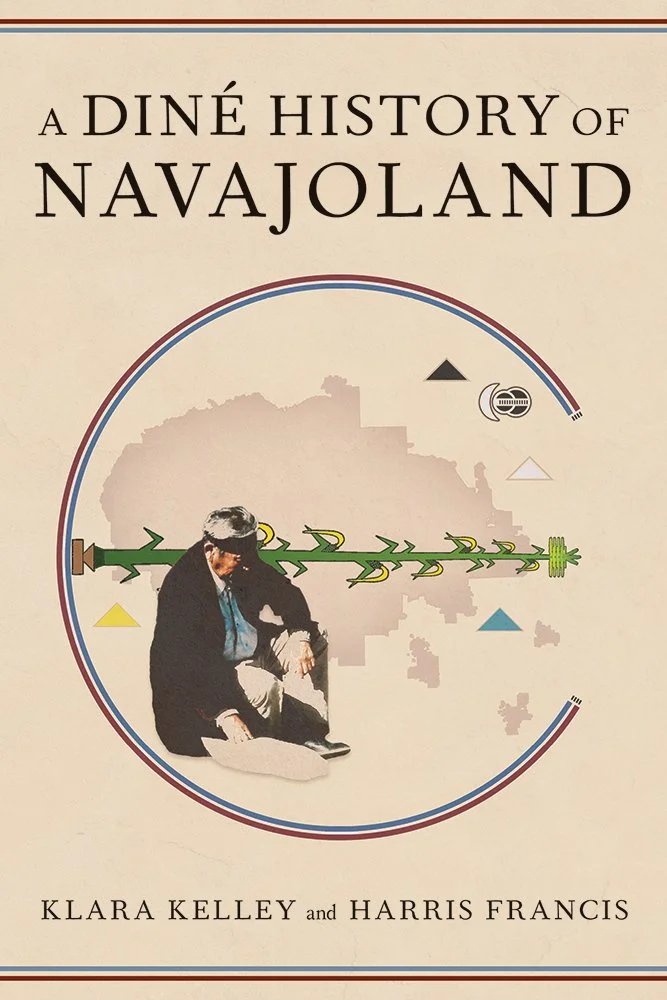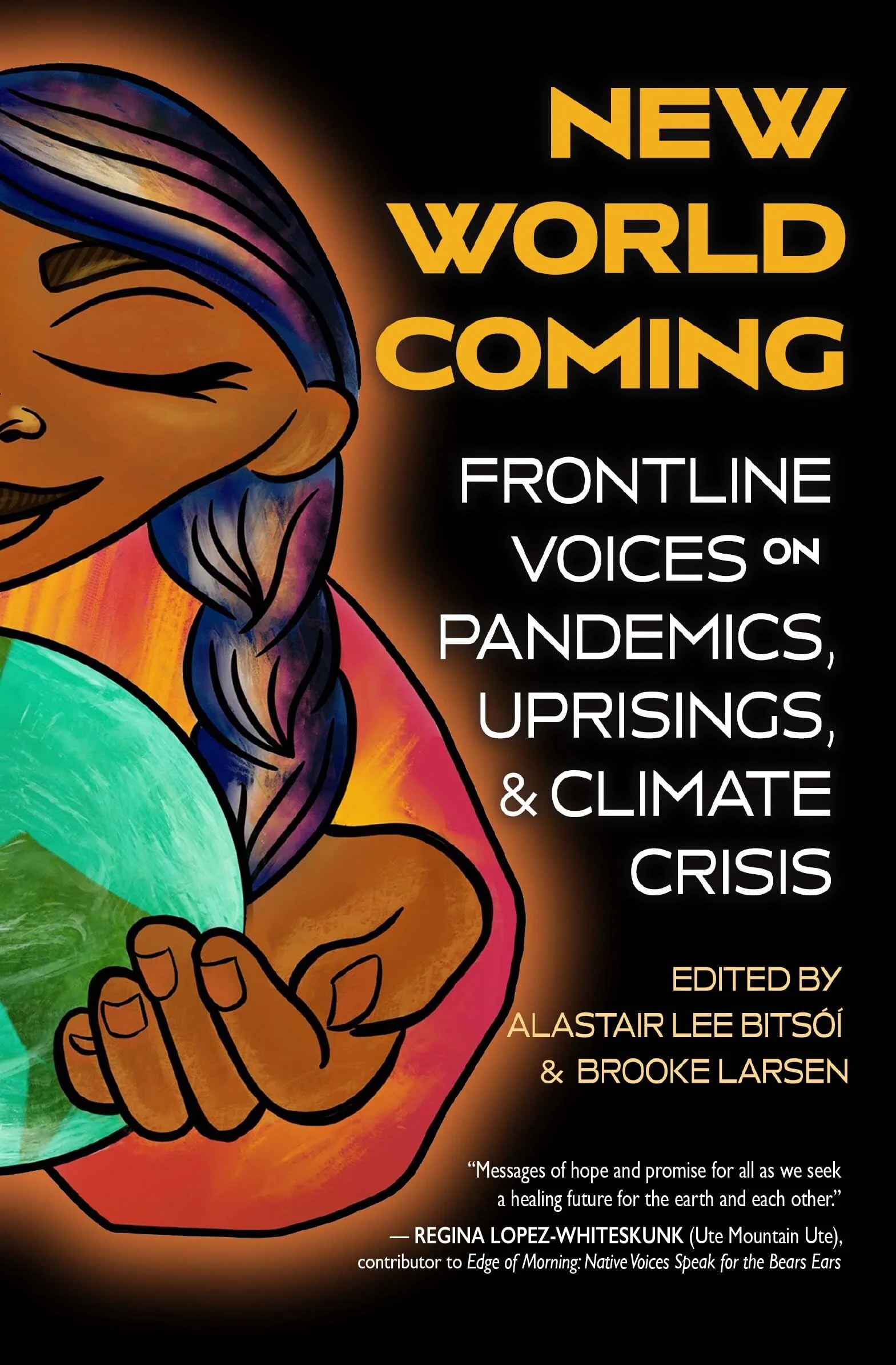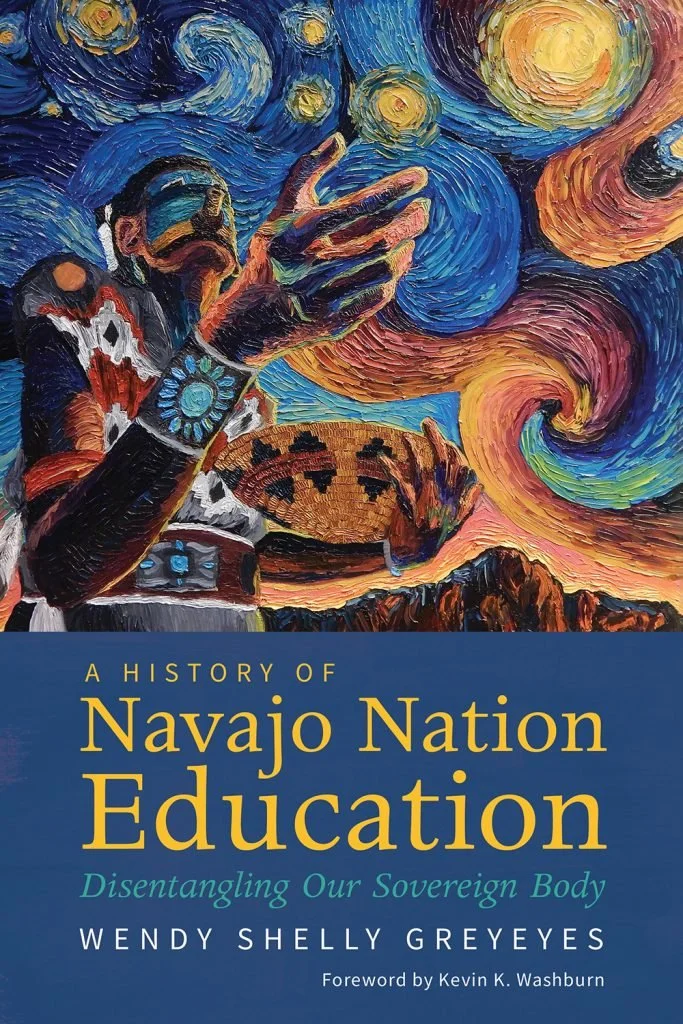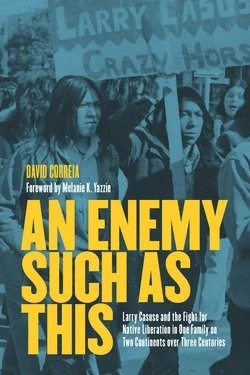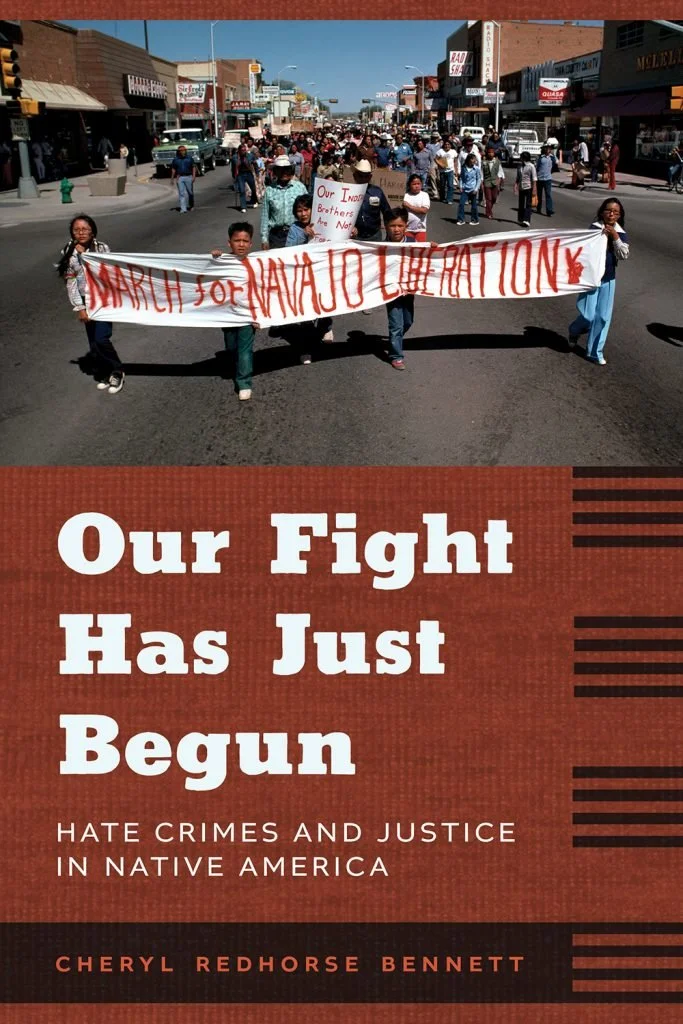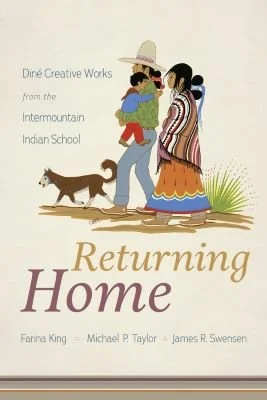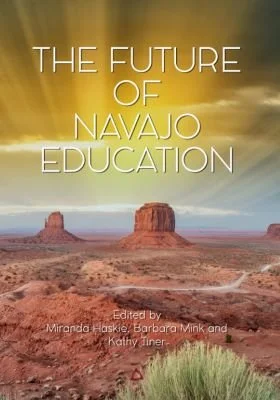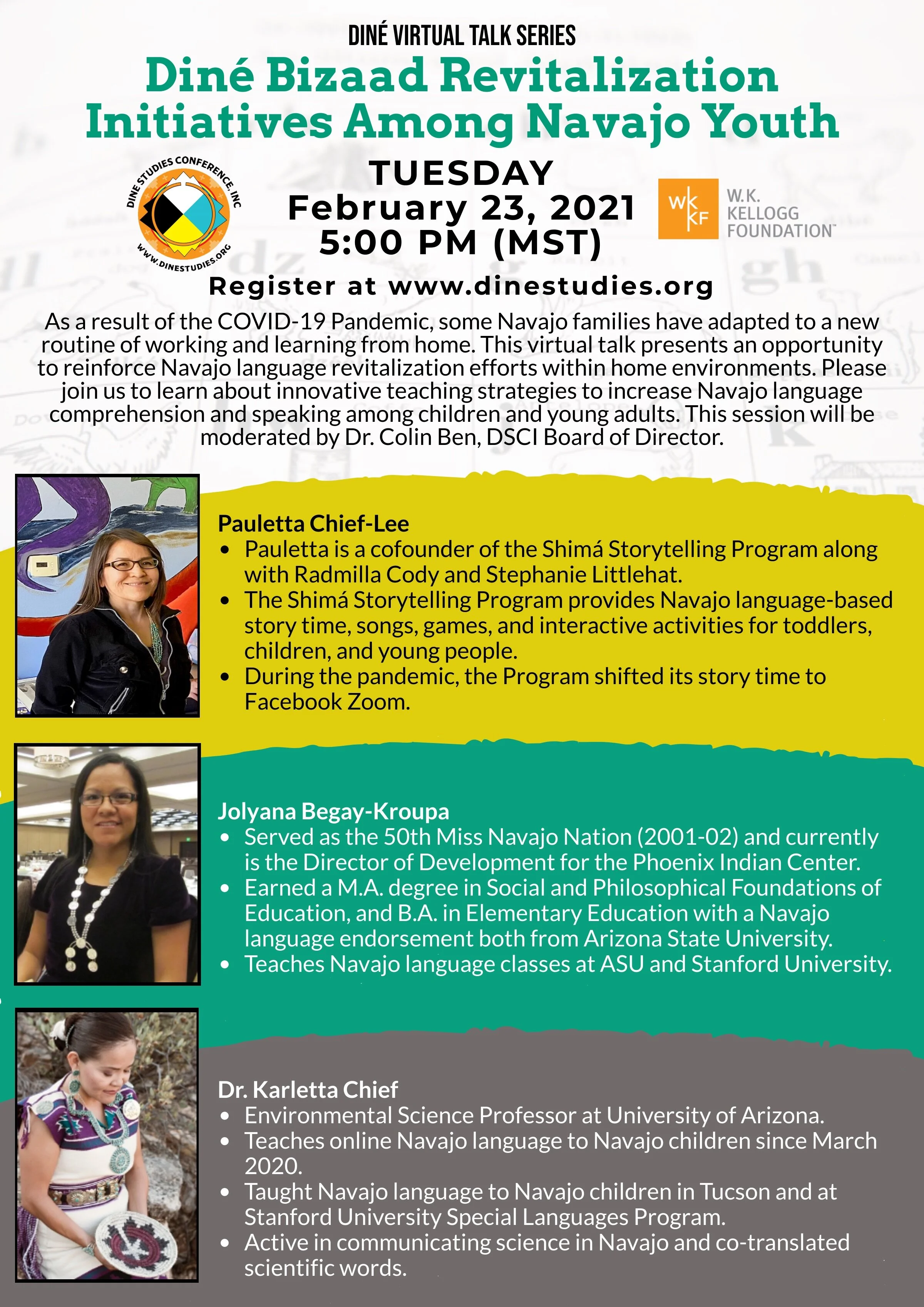Past Diné Virtual Talk Events
Support the authors by purchasing their books. Click the book images to purchase.
Frank Adakai “Yel’Nah’Yah: One Who has Walked It.”
Tuesday, November 15, 2022, 5:30 to 6:30 p.m. (MST)
This book is the real life story of a successful Dineh', which came about a personal history as result of Native American stories and writings are always about negativity. There are successful Native Americans who, through their own efforts contributed to society. Dineh' teachings from the past has always centered on, DAH' EIN' SHIEI ' ES' SHI' or what contributions have you made that is of land mark that others see? The other teaching is, TAH' WHO' IT' JII' TWEI' or individually you as a person can achieve what you set your mind on. The other purpose for this writing is not to brag, but to stop the stereotyping of natives always in line for a free handout. There are many Natives who have made a name for themselves that others do not acknowledge.
During this year, Frank Adakai passed away on June 26, 2022. Frank grew up in Manuelito, New Mexico and was the oldest of 12 brothers and sisters. Frank’s daughter Cookie Adakai will be speaking on his behalf.
Frank Adakai, Dineh', resides in Albuquerque, New Mexico, with his beautiful wife Corie Moran. After thirty-seven and half (37 1/2) years, he retired from the Criminal Justice System, Tribal and Federal. He became interested in writing about his life, to fulfill the Dineh' teaching of, Tah' Who' Ah' Jii' Twei', the person you are can achieve anything. Hopefully, others can really look at themselves and develop an attitude to do the same thing. It is never too late.
Daniel Vandever “Herizon”
Monday, October 3, 5:30 to 6:30 p.m.
Herizon is a book dedicated to my nieces with the hope for a more inclusive, empowering future. The story details the journey of a girl as she helps her grandmother retrieve a flock of sheep aided by a magical scarf. Within the scarf’s powers is the ability to transform, which changes the girl and the world she knows. In an age that has seen the election of the first female vice president in U.S. history, Herizon speaks to the power of the moment and not a distant idea of what could be. It is a story that honors progress and persistence.
Daniel Vandever (Diné) is an award-winning author and entrepreneur from Haystack, NM. He is the CEO of South of Sunrise Creative, a strategic communications firm that helps advance higher education initiatives through community-based solutions. Vandever is a product of Small Wonders Day Care where his experiences as a Ninja Turtle helped shape the creativity behind his debut picture book, Fall in Line, Holden!, a 2018 Honor Book for the American Indian Youth Literature Award. His follow up picture book, Herizon (2021), was self-published and was recognized as the Best Picture Book of 2022 by the American Indian Library Association. Vandever received his undergraduate degree in Strategic Communications from the University of Missouri and a Master’s in Community and Regional Planning from the University of New Mexico. Vandever is the grandson of the late Joe Vandever Sr., Navajo Code Talker, USMC, and Bessie D. Vandever.
Klara Kelley and Harris Francis, “A Diné History of Navajoland”
Tuesday, September 13, 5:30 to 6:30 p.m. (MDT)
For the first time, a sweeping history of the Diné that is foregrounded in oral tradition. Authors Klara Kelley and Harris Francis share Diné history from pre-Columbian time to the present, using ethnographic interviews in which Navajo people reveal their oral histories on key events such as Athabaskan migrations, trading and trails, Diné clans, the Long Walk of 1864, and the struggle to keep their culture alive under colonizers who brought the railroad, coal mining, trading posts, and, finally, climate change. The early chapters, based on ceremonial origin stories, tell about Diné forebears. Next come the histories of Diné clans from late pre-Columbian to early post-Columbian times, and the coming together of the Diné as a sovereign people. Later chapters are based on histories of families, individuals, and communities, and tell how the Diné have struggled to keep their bond with the land under settler encroachment, relocation, loss of land-based self-sufficiency through the trading-post system, energy resource extraction, and climate change. Archaeological and documentary information supplements the oral histories, providing a comprehensive investigation of Navajo history and offering new insights into their twentieth-century relationships with Hispanic and Anglo settlers. For Diné readers, the book offers empowering histories and stories of Diné cultural sovereignty. “In short,” the authors say, “it may help you to know how you came to be where—and who—you are.”
Harris Francis is Táchii’nii clan, born for Tábąąhá clan, from Teesto, Arizona. He served in the US Army, 1973-76, and graduated from the Navajo Paralegal School Program, Flagstaff, AZ, in 1979. Then he worked for Navajo Nation social services, Navajo Tribal Legal Department (Navajo Nation court system), and the Navajo Nation Archaeology and Historic Preservation (now Heritage and Historic Preservation) Departments. Harris’s family is rooted in land partitioned to the Hopi Tribe in 1974 and has refused to give up family lands there. Harris has been active in relocation issues for most of his adult life.
Klara Kelley received a PhD in Anthropology from the University of New Mexico in 1977. She taught anthropology and economics at Navajo Community College (now Diné College) in 1977-78, then worked for the Navajo Nation Archaeology and Historic Preservation Departments. Since 1993, both Harry Francis and Dr. Klara Kelley have worked together as independent cultural resources (CRM) consultants for various Navajo Nation government programs and enterprises; federal programs, and private companies. These projects involve consulting Diné elders all over the traditional Diné homeland to protect and preserve Diné oral tradition and Diné sacred and historical places. We take pride in having worked with the Diné Medicine Man’s Association in the late 1990s, including making coffee at meetings! Our books, Navajo Sacred Places (Indiana University Press, Bloomington IN, 1994), Navajoland Trading Post Encyclopedia (2018, Navajo Nation Heritage and Historic Preservation Program), and A Diné History of Navajoland, as well as several scholarly articles, have come out of this work.
Alastair Bitsoi and Brooke Larsen, “New World Coming: Frontline Voices on Pandemics, Uprisings, and Climate Crisis”
Tuesday, August 16, 2022, 5:30 to 6:30 p.m. (MDT)
New World Coming documents this distinct moment in history through personal narratives and intergenerational imaginings of a just, healthy, and equitable future. Writers reflect on what movements for justice and liberation can learn from the response to COVID-19, uprisings for Black lives, and climate crisis, inspiring the change we need to survive and thrive. These powerful narratives cultivate and strengthen our imaginations for a regenerative future.
Contributors: Franque Bains, Mishka Banuri, Arlyssa Becenti, Jade Begay, Tara Benally, Kern Collymore, Nellie Jo David, Sunny Dooley, Ashley Finley, Irene Franco Rubio, Brinley Froelich, Lilian Hill, Uyen Hoang, Linda Hogan, Nicole Horseherder, Kinsale Hueston, Psarah Johnson, Melissa-Malcolm King, Lyrica Jensen Maldonado, Mariella Mendoza, Esther Meroño Baro, Denae Shanidiin, Chip Thomas, Laura Tohe, John Tveten, Braidan Weeks, and Ahjani Yepa.
Alastair Lee Bitsói (Diné) is from the Navajo Nation community of Naschitti, below the Chooshgai Mountains on the New Mexico–Arizona state line. He has been an award-winning news reporter for the Navajo Times and communications director for the Indigenous-led land conservation nonprofit Utah Diné Bikéyah. His consulting business, Near the Water Communications and Media Group, trains media, nonprofits, businesses, and governments in cultural sensitivity. Along with being a 2021 Public Voices Fellow on the Climate Crisis with the Op-Ed Project and Yale Program on Climate Change Communication, he is the community practitioner-in-residence with the University of Utah's Environmental Humanities Program. Mr. Bitsoi holds a master’s degree in public health from New York University College of Global Public Health and is an alumnus of Gonzaga University. He now writes for the Salt Lake Tribune as the Southern Utah reporter.
Brooke Larsen is a writer and community organizer. She has an MA in Environmental Humanities from the University of Utah and was the recipient of the High Country News Bell Prize for emerging writers. Brooke has spent the past decade organizing with the climate justice movement. She co-founded Uplift, a youth-led organization for climate justice in the Southwest, and was a youth delegate to the UN Climate Change Conference in 2016 with SustainUS. Brooke has a BA in environmental policy from Colorado College, where she researched land and water issues with the State of the Rockies Project. She is currently the community engagement coordinator for the U of U Environmental Humanities Program.
Wendy S. Greyeyes, “A History of Navajo Education: Disentangling Our Sovereign Body”
Tuesday, July 12, 5:30 to 6:30 p.m. (MDT)
A History of Navajo Nation Education: Disentangling Our Sovereign Body unravels the tangle of federal and state education programs that have been imposed on Navajo people and illuminates the ongoing efforts by tribal communities to transfer state authority over Diné education to the Navajo Nation. On the heels of the fiftieth anniversary of the founding of the Department of Diné Education, this important education history explains how the current Navajo educational system is a complex terrain of power relationships, competing agendas, and jurisdictional battles influenced by colonial pressures and tribal resistance. An iron grip of colonial domination over Navajo education remains, thus inhibiting a unified path toward educational sovereignty. In providing the historical roots to today’s challenges, Wendy Shelly Greyeyes clears the path and provides a go-to reference to move discussions forward.
Wendy Shelly Greyeyes (Diné) is an assistant professor of Native American studies at the University of New Mexico. Greyeyes grew up in Kayenta, Arizona on the Navajo Nation. Greyeyes has worked for the Arizona Governor, the Navajo Nation’s Department of Diné Education, and the Bureau of Indian Education under the U.S. Department of the Interior. She has served as co-chair for the National Indian Education Association’s Advocacy Committee and the faculty member for the Institute for American Indian Education. Currently, she serves as the Navajo Representative for the New Mexico Indian Education Advisory Council (IEAC), President of Diné Studies Conference, Inc., the President of the American Indian Studies Association, and a faculty advisor for the UNM Kiva Club and UNM Native American Alumni Chapter.
AMANDA TACHINE, “NATIVE PRESENCE AND SOVEREIGNTY IN COLLEGE: SUSTAINING INDIGENOUS WEAPONS TO DEFEAT SYSTEMIC MONSTERS”
TUESDAY, JUNE 14, 5:30 TO 6:30 P.M. (MDT)
What is at stake when our young people attempt to belong to a college environment that reflects a world that does not want them for who they are? In this compelling book, Navajo scholar Amanda Tachine takes a personal look at 10 Navajo teenagers, following their experiences during their last year in high school and into their first year in college. It is common to think of this life transition as a time for creating new connections to a campus community, but what if there are systemic mechanisms lurking in that community that hurt Native students’ chances of earning a degree? Tachine describes these mechanisms as systemic monsters and shows how campus environments can be sites of harm for Indigenous students due to factors that she terms monsters’ sense of belonging, namely assimilating, diminishing, harming the worldviews of those not rooted in White supremacy, heteropatriarchy, capitalism, racism, and Indigenous erasure. This book addresses the nature of those monsters and details the Indigenous weapons that students use to defeat them. Rooted in love, life, sacredness, and sovereignty, these weapons reawaken students’ presence and power.
Amanda R. Tachine is Navajo from Ganado, Arizona. She is Náneesht’ézhí Táchii’nii (Zuni Red Running into Water) born for Tł’ízí łání (Many Goats). She is an Assistant Professor in Educational Leadership & Innovation at Arizona State University. Amanda’s research explores the relationship between systemic and structural histories of settler colonialism and the ongoing erasure of Indigenous presence and belonging in college settings using qualitative Indigenous methodologies. She is the author of Native Presence and Sovereignty in College and co-editor of Weaving an Otherwise: In-relations Methodological Practice. She has published in the Journal of Higher Education, Qualitative Inquiry, International Review of Qualitative Research, International Journal of Qualitative Studies in Education, and other scholarly outlets. She also has published thought pieces in the Huffington Post, Al Jazeera, The Hill, Teen Vogue, Indian Country Today, Inside Higher Ed, and Navajo Times where she advances ideas regarding discriminatory actions, educational policies, and inspirational movements
Pedro Vallejo and Vincent Werito, “Transforming Diné Education: Innovations in Pedagogy and Practice”
Wednesday, May 4, 5:30 to 6:30 p.m. (MDT)
Transforming Diné Education: Innovations in Pedagogy and Practice gathers the voices of Diné scholars, educators, and administrators to offer critical insights into contemporary programs that place Diné-centered pedagogy into practice. Bringing together decades of teaching experience, contributors offer perspectives from school- and community-based programs, as well as the tribal, district, and university level. They address special education, language revitalization, wellness, self-determination and sovereignty, and university-tribal-community partnerships. These contributions foreground Diné ways of knowing both as an educational philosophy and as an active practice applied in the innovative programs the book highlights. The contributors deepen our understanding of the state of Navajo education by sharing their perspectives about effective teaching practices and the development of programs that advance educational opportunities for Navajo youth. This work provides stories of Diné resilience, resistance, and survival. It articulates a Diné-centered pedagogy that will benefit educators and learners for generations to come. Transforming Diné Education fills a need in the larger literature of curricular and programmatic development and provides tools for academic success for all American Indian students.
Contributors: Berlinda Begay, Lorenda Belone, Michael “Mikki” Carroll, Quintina “Tina” Deschenie, Henry Fowler, Richard Fulton, Davis E. Henderson, Kelsey Dayle John, Lyla June Johnston, Tracia Keri Jojola, Tiffany S. Lee, Shawn Secatero, Michael Thompson, Pedro “Pete” Vallejo, Christine B. Vining, Vincent Werito,
David Correia, “An Enemy Such as This: Larry Casuse and the Fight for Native Liberation in One Family on Two Continents over Three Centuries” with Guest Ursula C. Carrillo and Dr. Melanie Yazzie.
Tuesday, April 26, 5:30 to 6:30 p.m. (MDT)
The remarkable true story of an indigenous family who fought back, over multiple generations, against the world-destroying power of settler colonial violence. Just weeks before police would kill him in Gallup, New Mexico, in March of 1973, Larry Casuse wrote that “never before have we faced an enemy such as this.” An Enemy Such as This, for the first time, tells the history of that colonial enemy through the simultaneously epic and intimate story of Larry Casuse and those, like him, who fought against it. From the genocidal Mexican war against the Apaches in the nineteenth century, through the collapse of European empires in the first half of the twentieth century, and culminating in the efforts of young Navajo activists and organizers in the second half of the twentieth century to confront settler colonialism in New Mexico, the book offers a resolutely Native-focused history of colonialism.
David Correia is a Professor of American Studies at the University of New Mexico. He is the author of Properties of Violence (University of Georgia Press, 2013), co-author with Tyler Wall of Police: A Field Guide (Verso, 2018), and co-author with Nick Estes, Melanie Yazzie, and Jennifer Denetdale of Red Nation Rising Nation: From Bordertown Violence to Native Liberation (PM Press, 2021).
Ursula Casuse -Carrillo is originally from Silver City, NM. She is of Navajo and Austrian descent, and is the sister of Larry Casuse. The third youngest of seven children, and raised in Gallup N.M. Ursula has experienced the prejudice and misunderstanding of the passing of her brother and his message. She has been passionate about telling his story and keeping his memory alive as well as its truth. Ursula graduated from the University of New Mexico with a degree in Human Services and studying business, she eventually started Carrillo Painting, Inc, a painting contracting business, with which she operates and owns with her family. She is the mother of two children and is deeply devoted to her two grand daughters. Enjoys Tae Kwon Do and is an avid animal lover.
Our Fight has just begun: Hate Crimes and Justice in Native America
Tuesday, March 29, 2022 - 5 p.m. to 6 p.m. (MDT)
By Dr. Cheryl Redhorse Bennett
Our Fight Has Just Begun is a timely and urgent work. The result of more than a decade of research, it revises history, documents anti-Indianism, and gives voice to victims of racial violence. Navajo scholar Cheryl Redhorse Bennett reveals a lesser-known story of Navajo activism and the courageous organizers that confronted racial injustice and inspired generations. Illuminating largely untold stories of hate crimes committed against Native Americans in the Four Corners region of the United States, this work places these stories within a larger history, connecting historical violence in the United States to present-day hate crimes. Bennett contends that hate crimes committed against Native Americans have persisted as an extension of an “Indian hating” ideology that has existed since colonization, exposing how the justice system has failed Native American victims and families. While this book looks deeply at multiple generations of unnecessary and ongoing pain and violence, it also recognizes that this is a time of uncertainty and hope. The movement to abolish racial injustice and racially motivated violence has gained fierce momentum. Our Fight Has Just Begun shows that racism, hate speech, and hate crimes are ever present and offers recommendations for racial justice.
Farina King, Michael Taylor, and James Swensen- Returning Home Diné Creative Works from the Intermountain Indian School
Returning Home features and contextualizes the creative works of Diné (Navajo) boarding school students at the Intermountain Indian School, which was the largest federal Indian boarding school between 1950 and 1984. Diné student art and poetry reveal ways that boarding school students sustained and contributed to Indigenous cultures and communities despite assimilationist agendas and pressures. This book works to recover the lived experiences of Native American boarding school students through creative works, student interviews, and scholarly collaboration. It shows the complex agency and ability of Indigenous youth to maintain their Diné culture within the colonial spaces that were designed to alienate them from their communities and customs. Returning Home provides a view into the students’ experiences and their connections to Diné community and land. Despite the initial Intermountain Indian School agenda to send Diné students away and permanently relocate them elsewhere, Diné student artists and writers returned home through their creative works by evoking senses of Diné Bikéyah and the kinship that defined home for them. Returning Home uses archival materials housed at Utah State University, as well as material donated by surviving Intermountain Indian School students and teachers throughout Utah, Arizona, and New Mexico. Artwork, poems, and other creative materials show a longing for cultural connection and demonstrate cultural resilience. This work was shared with surviving Intermountain Indian School students and their communities in and around the Navajo Nation in the form of a traveling museum exhibit, and now it is available in this thoughtfully crafted volume. By bringing together the archived student arts and writings with the voices of living communities, Returning Home traces, recontextualizes, reconnects, and returns the embodiment and perpetuation of Intermountain Indian School students’ everyday acts of resurgence. Book can be purchased at: https://uapress.arizona.edu/book/returning-home
Ezra Rosser, A Nation Within: Navajo Land and Economic Development
In A Nation Within, Ezra Rosser explores the connection between land-use patterns and development in the Navajo Nation. Roughly the size of Ireland or West Virginia, the Navajo reservation has seen successive waves of natural resource-based development over the last century: grazing and over-grazing, oil and gas, uranium, and coal; yet Navajos continue to suffer from high levels of unemployment and poverty.
Rosser shows the connection between the exploitation of these resources and the growth of the tribal government before turning to contemporary land use and development challenges. He argues that, in addition to the political challenges associated with any significant change, external pressures and internal corruption have made it difficult for the tribe to implement land reforms that could help provide space for economic development that would benefit the Navajo Nation and Navajo tribal members. Book can be purchased at: https://www.cambridge.org/us/academic/subjects/law/us-law/nation-within-navajo-land-and-economic-development?format=PB
Lloyd L. Lee, Author of DinÉ identity in a twenty-first century world
Diné identity in the twenty-first century is distinctive and personal. It is a mixture of traditions, customs, values, behaviors, technologies, worldviews, languages, and lifeways. It is a holistic experience. Diné identity is analogous to Diné weaving: like weaving, Diné identity intertwines all of life’s elements together. In this important new book, Lloyd L. Lee, a citizen of the Navajo Nation and an associate professor of Native American studies, takes up and provides insight on the most essential of human questions: who are we? Finding value and meaning in the Diné way of life has always been a hallmark of Diné studies. Lee’s Diné-centric approach to identity gives the reader a deep appreciation for the Diné way of life. Lee incorporates Diné baa hane’ (Navajo history), Sa’ą́h Naagháí Bik’eh Hózhǫ́ǫ́n (harmony), Diné Bizaad (language), K’é (relations), K’éí (clanship), and Níhi Kéyah (land) to address the melding of past, present, and future that are the hallmarks of the Diné way of life. This study, informed by personal experience, offers an inclusive view of identity that is encompassing of cultural and historical diversity. To illustrate this, Lee shares a spectrum of Diné insights on what it means to be human. Diné Identity in a Twenty-First-Century World opens a productive conversation on the complexity of understanding and the richness of current Diné identities. Book can be purchased at: https://uapress.arizona.edu/book/dine-identity-in-a-twenty-first-century-world
Miranda Haskie, Co-Author of The future of Navajo Education
As our schools struggle to return to normal operations in the wake of the pandemic, one issue is often forgotten: the challenges facing educational institutions at Native Nations. These Nations face unique obstacles, including limited access to the Internet, let alone broadband; scarcity of electricity or running water; and the need to preserve and foster their unique language and cultural values. These challenges have inspired a new book, The Future of Navajo Education, which offers a number of case studies illustrating efforts by the Navajo Nation to boost the career prospects of their students. Some of these academic programs feature a focus on organizational change while living in harmony with the natural world and the universe. Others emphasize social responsibility and community service, in accordance with the philosophy of Navajo culture. The volume includes contributions by prominent Navajo leaders and scholars, including Navajo Nation President Jonathan Nez; Dr. Manley Begay, Professor of Applied Indigenous Studies at Northern Arizona University; Dr. Henry Fowler, Associate Professor of Mathematics at Navajo Technical University; The Honorable Robert Yazzie, Chief Justice Emeritus of the Navajo Nation; and Dr. Miranda Haskie, Professor of Sociology at Diné College in Tsaile, AZ. The book is an outflow of a number of Navajo Education Conferences at Window Rock, AZ, co-sponsored by Fielding Graduate University in collaboration with the Navajo Nation. Book can be purchased at: https://www.amazon.com/Future-Navajo-Education-Miranda-Haskie/dp/1638487022
Brian Young, Author - Healer of the Water Monster
Native American Heritage Month - Diné Virtual Talk Series
Brian Young’s powerful debut novel tells of a seemingly ordinary Navajo boy who must save the life of a Water Monster—and comes to realize he’s a hero at heart. When Nathan goes to visit his grandma, Nali, at her mobile summer home on the Navajo reservation, he knows he’s in for a pretty uneventful summer, with no electricity or cell service. Still, he loves spending time with Nali and with his uncle Jet, though it’s clear when Jet arrives that he brings his problems with him. One night, while lost in the nearby desert, Nathan finds someone extraordinary: a Holy Being from the Navajo Creation Story—a Water Monster—in need of help. Now Nathan must summon all his courage to save his new friend. With the help of other Navajo Holy Beings, Nathan is determined to save the Water Monster, and to support Uncle Jet in healing from his own pain.
Brian Young’s book can be purchased at: https://www.harpercollins.com/products/healer-of-the-water-monster-brian-young?variant=32269101989922
2020 - 2021 - Diné Virtual Talk Series
We received support from the W.K. Kellogg Foundation to provide a series of Diné Virtual Talk to continue to educate and empower our people during this time of this global pandemic impacting our communities.
Diné Virtual Series Talk 1: Diné k'ehjí ił éédahózin
Thursday, July 30, 2020 at 4 p.m. (Mountain)
Diné k'ehjí ił éédahózin provides a glimpse into the meaning of our Navajo way of life teachings and values. Navajo knowledge is deeply rooted in the communication with the Diyin Diné’é beings. Once those tools and resources were passed down to Navajo people, it has been the responsibility of the people to carry those teachings and values into the future. The first Diné Virtual Talk event will highlight teachings for our younger generations to come. Thank you for joing us to hear Lyla June Johnston and Adriano Tsinigine share their knowledge. Moderated by Triston Black, DSCI Board of Director.
Diné Virtual Talk Series 2: Diné Educators on the frontlines-Creating online communities on Navajo Nation
Thursday, August 13, 2020 at 4 p.m. (MDT)
The design of new models of online teaching to reach and educate Navajo students during a global pandemic has brought unique challenges for Navajo educators and leaders. This panel will discuss online teaching models in primary education, tribal colleges, and universities. Each educator will showcase a strategy or model from their online teaching in Native American Studies, Photography, and Elementary school. Join us to explore innovative strategies working to educate our Navajo children and students.
Thank you to our panelists: Dr. Tiffany Lee, Dr. Monty Roessel, Ms. Andrea Thomas, and Mrs. Adriane Jopek. Moderated by Dr. Wendy S. Greyeyes, DSCI President.
Diné Virtual Talk Series 3: Spiritual and Mental Wellness During COVID-19
Wednesday, September 23, 2020 at 6:30 p.m. (MDT)
As infection rates decrease across the Navajo Nation and life returns to the patterns of work and school, the COVID-19 global pandemic continues to impact almost every aspect of life for Diné people. The necessary social distancing that has brought the Nation out of a period of intense sickness and grief has also increased the difficulty with which Navajo individuals are able to access spiritual and mental care resources. Panelists will share their expertise as a medicine woman and therapists to address the tolls of isolation and the extreme presence of sickness and death, in addition to offering strategies and teachings to help support spiritual wellbeing and mental endurance at this time. The Diné Virtual Talk Series panelists are Sheila Goldtooth, Monique Castro, and Chad Pfeiffer. This session will be moderated by DSCI Board of Director Samuel Slater.
Diné Virtual Talk Series 4: Diné Kinaaldá Workshop
Saturday, October 18, 2020 at 4 p.m. (Mountain)
In Diné society, the Kinaaldá is a right of passage for both young women and men. This workshop will discuss the materials and supplies needed for the ceremony. The presenters will share video resources available online. Although, the presenters' have opted to not cover songs, prayers, and oral stories of the Kinaaldá ceremony. We are very grateful for our co-presenters, Dr. Melvatha R. Chee and Mr. Warlance Chee. This session will be moderated by Diné Studies Board of Director Mr. Homer Hubbell.
Diné Virtual Talk Series 5: Ni'yisdzáán dóó Níłch'ih ał'aan ánáá'niił (Change of Season)
Thursday, October 29, 2020 at 6 p.m. (Mountain)
This presentation will explore the complexity of Diné thought and planning for the fall and winter through various lenses and teaching analogies. Each season within the year has its purpose. The fall season is one of our best teachers and when we are not prepared it will show us whether or not we are adhering to the teachings that come from the seasonal changes. These teachings are from the earth and the universe. Fall is a time to celebrate abundance from our hard work and recognizing the hardships that will come with winter. Mr. Kevin Belin will present on the topic of Ni'yisdzáán dóó Níłch'ih ał'aan ánáá'niił. This event will be moderated by Diné Studies Board of Director Ms. Elfreda Yazzie.
Diné Virtual Talk Series 6: Adziists’ą́ą (Navajo ways of Listening)
Sunday, November 8, 2020 at 2 p.m. (Mountain)
This talk will explore the origin of itsáá (ability of diagnosing), focusing on how traditional listening practices nurtures our children from birth to adolescence. We will focus on how listening was developed and the sacred tools that support these teachings. This will include human development; when humans were created and the spiritual gifts they were given. Travis Teller will share origins of these concepts and how listening is linked to the value of self. Carrie Anderson Williams, LPCC, will share child development from a clinical perspective focusing on how children prosper when listening is nurtured through stages of their development. The talk will continue to explore what happens when listening is not developed, a time here we would have to go back to basics for healing. We will explore how listening is healing because it allows someone’s story to be heard.
Diné Virtual Talk Series 7: Diné Bizaad Revitalization initiatives among navajo youth
Tuesday, February 23, 2021 at 5:00 p.m. (Mountain)
As a result of the COVID-19 Pandemic, some Navajo families have adapted to a new routine of working and learning from home. This virtual talk presents an opportunity to reinforce Navajo language revitalization efforts within home environments.
Diné Virtual Talk Series 8: ROUndtable discussion: The Diné Reader - An anthology of Navajo literature
Thursday, March 18, 2021 at 5:30 p.m. (Mountain)
A roundtable discussion celebrating the soon-to-be-released The Diné Reader: An Anthology of Navajo Literature (University of Arizona Press), a landmark collection of poetry and prose that includes a Diné literary chronology, interviews, biographies, and teacher resources. Join two of its editors, Esther Belin and Jeff Berglund, and contributing authors Jennifer Nez Denetdale, Manny Loley, and Irvin Morris for an engaging conversation with Navajo writers, scholars and educators.
